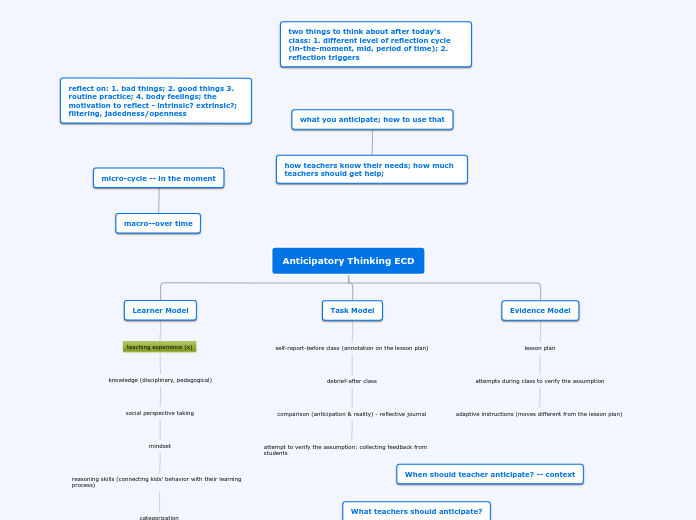arabera Lucheng Wang 6 years ago
394
Anticipatory Thinking ECD

arabera Lucheng Wang 6 years ago
394

Honelako gehiago
adaptive instructions (moves different from the lesson plan)
comparison (anticipation & reality) - reflective journal
attempt to verify the assumption: collecting feedback from students
social perspective taking
mindset
reasoning skills (connecting kids' behavior with their learning process)
categorization